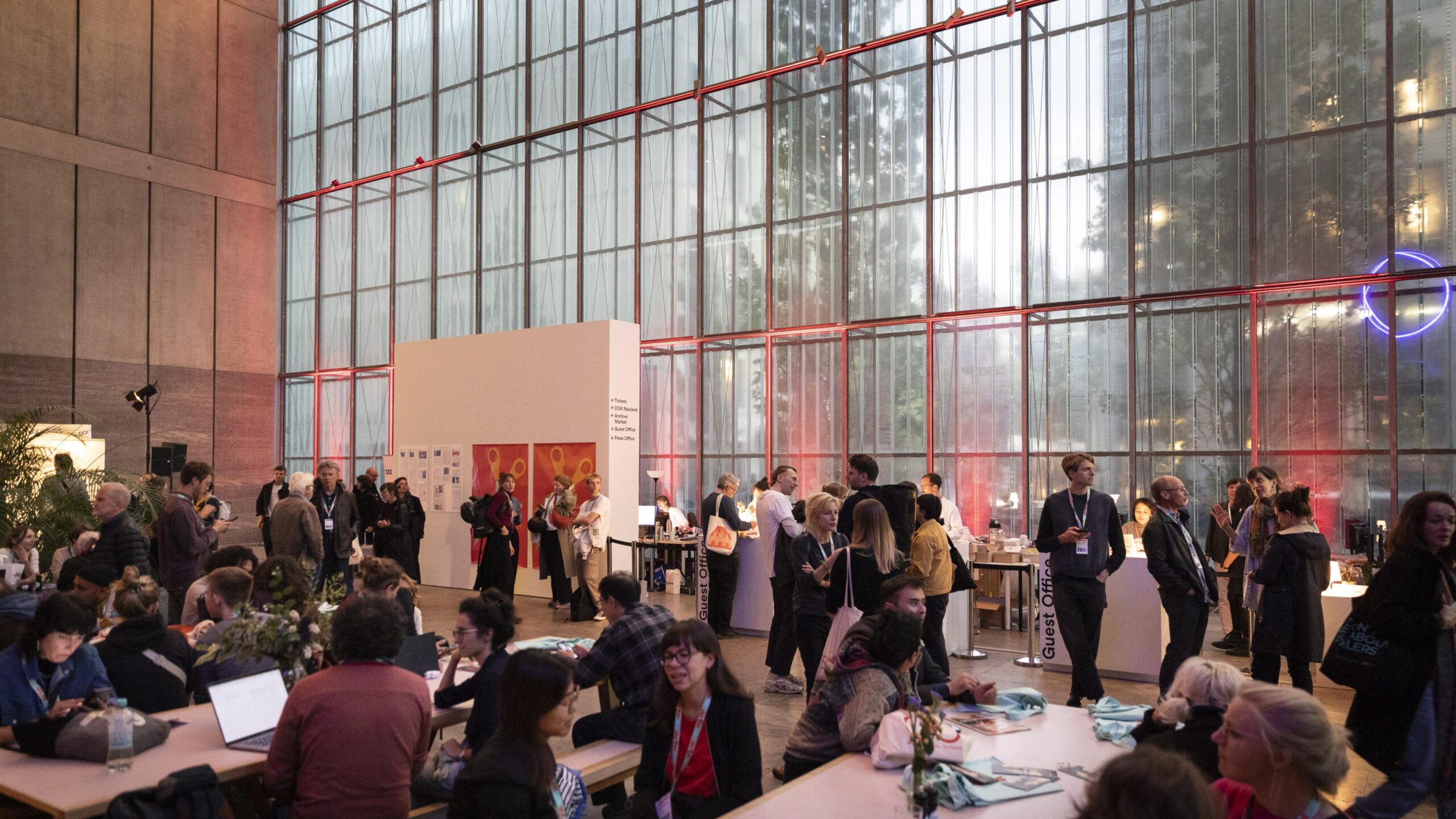Welcome to Dok Leipzig 68
.
VERDICT: The 68th edition of the world's longest-running documentary festival promises an all-inclusive Oktoberfest of high art and heavyweight issues, critical thinking and serious fun.
Greetings from Leipzig, where the 68th edition of Dok Leipzig film festival has just opened its warmly welcoming doors on a blustery autumn night. Even random commuters and casual tourists arriving in this handsome East German city can hardly avoid getting caught up in its annual cinematic Oktoberfest, with free public screenings happening every night in the cavernous arrivals hall of the main railway station, while the festival’s signature red posters and ticket boxes are highly visible right across the historic downtown area.
The latest Dok Leipzig opened with a screening of Writing Life: Annie Ernaux Through the Eyes of High School Students, French director Claire Simon’s enjoyably off-beat investigative film about young readers reacting to the work of the 2022 winner of the Nobel Prize for Literature. Like much of the festival program, Simon’s documentary makes an impassioned case for culture as a politically, intellectually, emotionally engaged activity. A message which feels especially urgent in these polarised, post-truth times.
“Culture is at risk,” warned the festival’s outgoing director Christoph Terhechte in his opening speech. “It is threatened by dwindling resources, by political influence, by self-censorship, and last but not least, by indifference. So we decided to open our 68th festival with a film about the potential and the value of culture.” In charge since 2019, Terhechte is stepping down after this edition for personal reasons, to be replaced by Aleksandra “Ola” Stazsel. Later this week, both will share a stage for a free public talk about the festival’s future, a timely theme in the light of deepening government cuts which saw Dok Leipzig’s budget shrink this year.
Inaugurated in 1955, the world’s longest-running documentary festival has had a few reboots and makeovers since its shaky birth under East Germany’s censorious Communist regime. But in recent years it has become a world-class platform for adventurous non-fiction films, often incorporating elements of visual art and bold formal experimentation. Among the buzzy world premieres due later this week in the International Documentary Competition section are Green Desert by Chilean artist-filmmaker Meliza Luna Venegas, which blends performance art with bleakly beautiful tableaux from Chile’s ravaged forest landscape, and Yulia Lokshina’s Active Vocabulary, about an exiled Russian schoolteacher who enlists her own students to re-enact her dramatic escape to Germany after being denounced for criticising the war in Ukraine.
Dok Leipzig always has its playfully entertaining side, especially in the animation section, which Terhechte has broadened and elevated significantly during his tenure. But critical thinking and hard-hitting social issues are the festival’s heartbeat. Also making its debut in competition is Srdan Kovacevic’s The Thing to be Done, a David-vs-Goliath portrait of a small Slovenian campaign group fighting for the rights of exploited workers across Europe. Another prestige world premiere is the complete long-form version of Conbody vs Everybody, the new TV documehtary series by Hollywood director Debra Granik (Winter’s Bone), which follows the a former drug dealer and ex-con as he struggles to launch a gym business in his old Lower East Side neighbourhood.
This blend of uncompromising aesthetics with social engagement also underpins Dok Leipzig’s wider spread of sections. This year, the festival salutes U.S. artist-director Lee Ann Schmidt, whose left-field 16mm essay-films chronicle the dark side and hollow myths of the American Dream. In its Industry events program, Leipzig is also hosting an invite-only session called Think Tank in partnership with Thessaloniki International Documentary Festival, which is designed to find practical ways to support displaced, exiled or marginalised filmmakers whose livelihoods are at risk. Among the case studies covered will be directors from Palestine, Georgia, Hungary and Myanmar. A serious festival for serious times, Dok Leipzig runs from October 27 to November 2.

